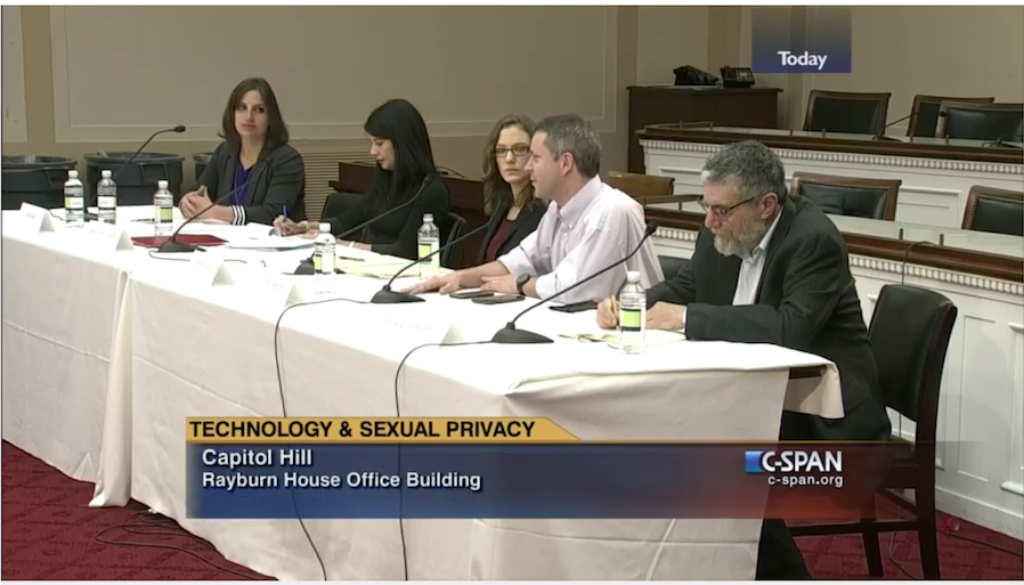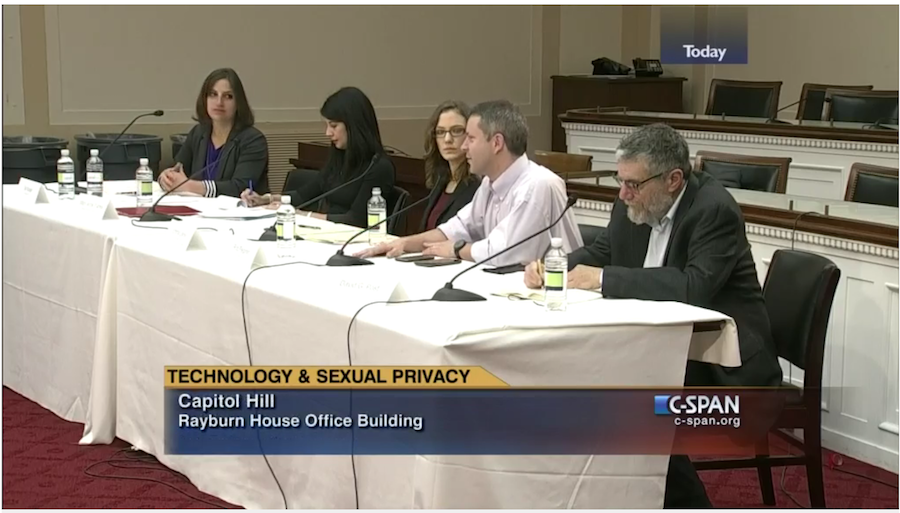Date: Thursday, November 6, 2014
Follow: @NetCaucusAC #ExposedPhotos
“Hunger Games” Actress Jennifer Lawrence stated in November’s Vanity Fair that exposure of her personal nude photos was a “sex crime.” Was it? If not, what kind of legal recourse does Jennifer Lawrence — or an everyday American citizen like you — have against hackers and web sites that peddle such photos? Today’s digitized era raises new, complicated questions regarding non-consensually shared private photos. What are the legal and social underpinnings in scenarios spanning from hacked private photos and revenge porn, to “upskirt” photos taken in public areas? Should American citizens hold certain privacy expectations and if so, what are they?
Speakers:
- Mary Anne Franks, Associate Professor of Law, University of Miami School of Law (Bio)
- Emma Llansó, Director, Free Expression Project, Center for Democracy and Technology (Bio)
- Rob Pegoraro, Columnist, Yahoo Tech (Bio)
- David G. Post, Contributor, Volokh Conspiracy on WashingtonPost.com
(Bio) - Tal Kopan, Cybersecurity Reporter, POLITICO Pro (Moderator) (Bio)
More About the Panel:
This widely attended educational briefing is hosted by the Congressional Internet Caucus Advisory Committee (ICAC), part of a 501 (c)(3) charitable organization. Congressional staff and members of the press welcome. The ICAC is a private sector organization comprised of public interest groups, trade associations, non-profits, and corporations. The ICAC takes no positions on legislation or regulation. Rather, it’s a neutral platform where thought leaders debate important technology issues that shape legislative and administration policy in an open forum. We vigilantly adhere to our mission to curate balanced and dynamic debates among Internet stakeholders. Our volunteer board members ensure that we dutifully execute that mission. More information on the ICAC is available at https://www.netcaucus.org.


